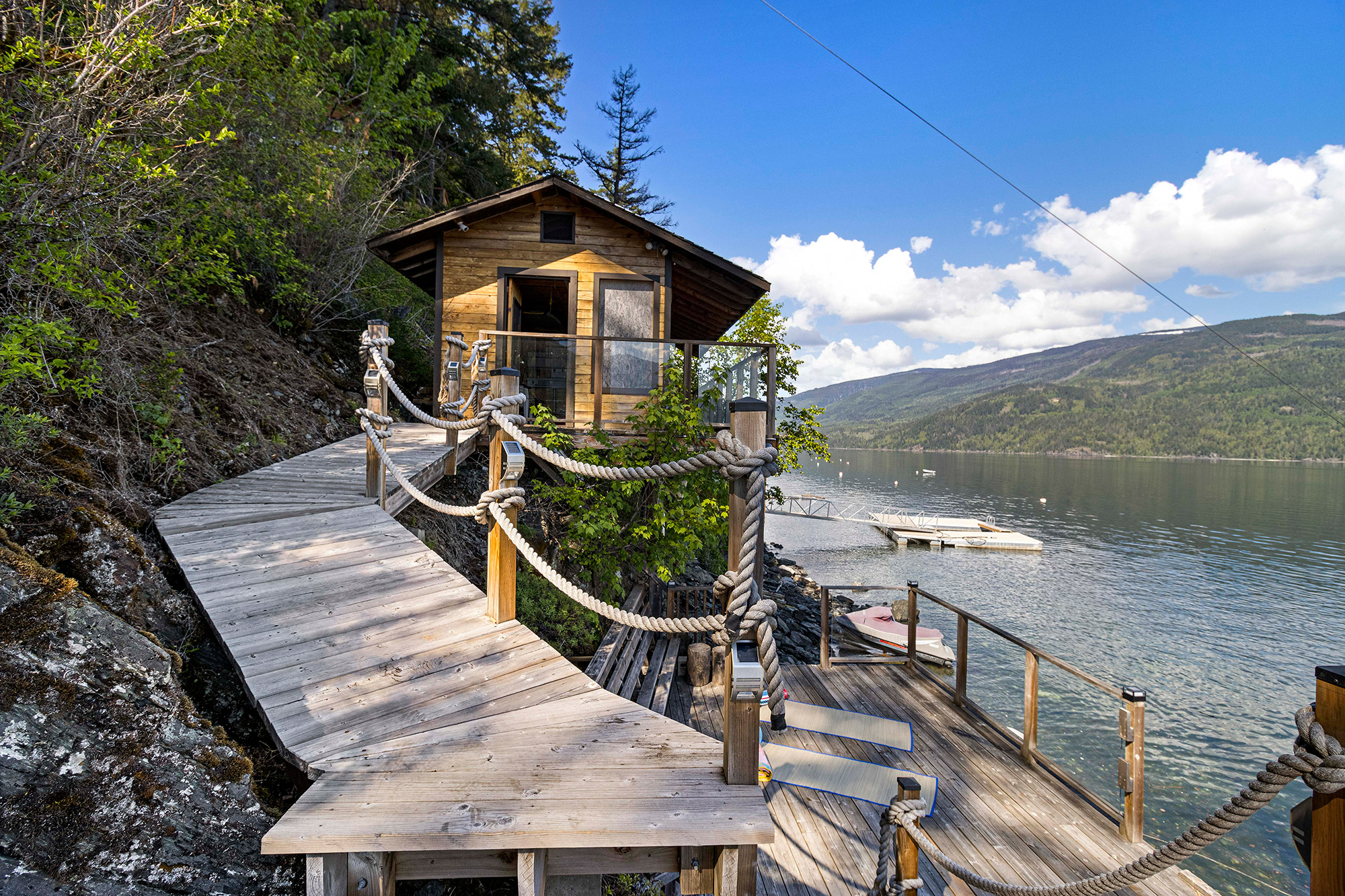1. Year-Round vs. Seasonal Use
What to Consider: Determine whether you’re seeking a year-round residence (like a house or cabin) or a seasonal retreat. Some properties, including certain RV parks, offer year-round access with winter services such as snow plowing, while others are only open for access during the summer months.
Why It Matters: Your choice impacts not only your enjoyment but also the type of maintenance and access infrastructure needed, ensuring that the property meets your expectations throughout the year.
2. Rental Regulations
What to Consider: Recent regulatory changes in parts of the Shuswap and broader BC have affected the rules on renting properties. If you’re considering renting out your property when not in use—whether short-term or long-term—it’s essential to understand current and potential future rental regulations.
Why It Matters: Being aware of rental rules helps you align your purchase with your financial goals and ensures you won’t face unexpected restrictions or neighborhood changes later on.
3. Foreshore Privileges & Zoning for Docks & Buoys
What to Consider: Clarify what waterfront features are included with the property. Some properties come with existing docks or buoys, which may or may not be legal, while others have zoning that allows you to add these features.
Why It Matters: Understanding foreshore rights and local zoning regulations prevents surprises regarding what you can or cannot do with the waterfront area, protecting your investment and enjoying your property.
4. Understanding Ownership Options
What to Consider: The Shuswap offers a variety of ownership types including freehold, strata, bare land strata, indigenous lease land, co-ops, shared interest arrangements, and government leases. Each has distinct implications for financing, resale, taxes, and long-term management.
Why It Matters: Choosing the right type of ownership can influence everything from property value to your day-to-day living experience and ongoing expenses, so it’s crucial to know what fits best with your goals.
5. Space and Layout Requirements
What to Consider: Think about how you plan to use the property. Will it be a bustling family getaway with lots of guests, or a quiet retreat for uninterrupted mornings on the dock?
Why It Matters: The property’s size, layout, and available amenities (like guest parking and communal spaces) should match your envisioned holiday experience, ensuring your holiday feels like the holiday you want it to be.
6. Maintenance Responsibilities
What to Consider: Your willingness and ability to manage property upkeep. Some properties, such as those in strata communities, have common areas maintained by management, while others require you to handle all maintenance yourself.
Why It Matters: Your desired level of involvement in property upkeep can significantly affect your enjoyment and the overall condition of the property over time.
7. Travel Time & Accessibility
What to Consider: Evaluate how accessible the property is. Some lakeshore properties are remote, accessible only by boat or via long, winding forest service roads.
Why It Matters: While a remote location might offer privacy and tranquility, excessive travel time can deter frequent visits. Balancing accessibility with your lifestyle needs is key to maximizing your enjoyment and use.
8. Shared Ownership Considerations
What to Consider: If you’re planning a group purchase with family or friends, establish clear agreements upfront. Discuss what happens if one party wants to sell or if usage expectations differ among owners.
Why It Matters: Transparent planning and legally binding agreements help avoid future conflicts and ensure that all parties remain satisfied with their investment and usage rights.
9. Insurance & Risk Management
What to Consider: With increasing climate events and seasonal occupancy challenges, insurance for recreational properties can be more complex and expensive. Check if the property requires weekly inspections or other specific conditions.
Why It Matters: Understanding insurance requirements and potential costs protects you financially and ensures that you’re prepared for the unique risks associated with recreational properties.
10. Professional Advice & Due Diligence
What to Consider: Engage with local real estate agents, property inspectors, accountants, and legal professionals who are familiar with the Shuswap market.
Why It Matters: Expert advice can help you navigate the complexities of property types, regulatory changes, and local market conditions, ensuring that you make a well-informed purchase that suits your long-term goals.



Comments:
Post Your Comment: